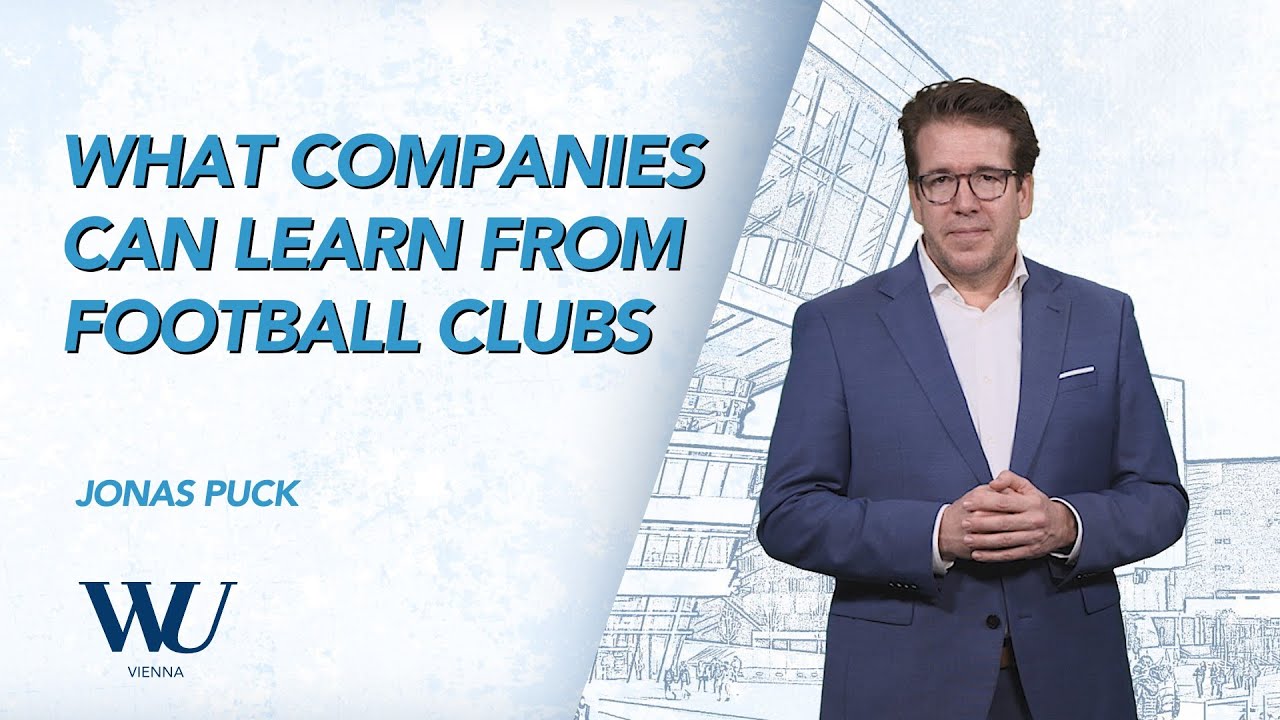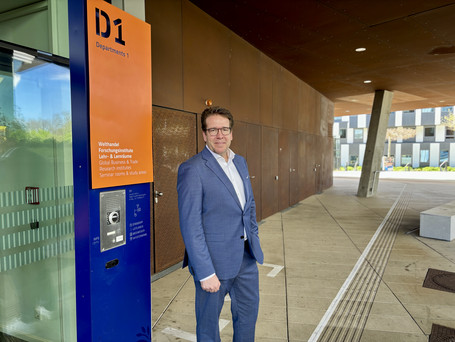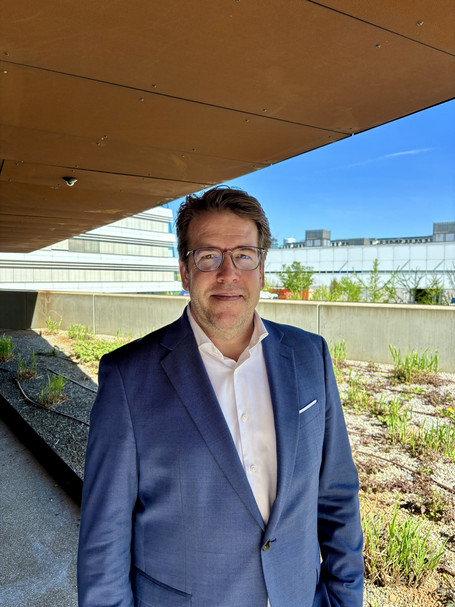Jonas Puck

From Sidelines to Boardrooms:…
Football coaches know that the right team composition is crucial for success. The same is true for corporate teams that have to master complex tasks in a business context. But while it is often difficult for management scientists to gain insights into team dynamics and decision-making in companies, there is much more and better data available in the world of football: there are many companies who are in the business of recording and evaluating every minute of play and every touch of the ball by professional footballers. Can this data be used to draw general conclusions about what defines good team management?
This is exactly what WU Professor Jonas Puck had in mind when he founded the Research Initiative on Sports and Management (RISM) together with his co-researcher Jakob Müllner. After all, professional sports is a microcosm of society – and findings from the world of sports can provide important insights to improve management work in other areas. This also works the other way around, however: Jonas Puck and his colleagues are also looking for ways in which management science can help to improve certain processes in professional sports.
Jonas Puck talks about these two aspects of his work in the latest episode of our Meet Our Researchers video series. After the video shoot, we accompanied Jonas Puck to his office at the Institute for International Business to ask him a few additional questions – about his research, his lifelong enthusiasm for football, and his daily commute to Campus WU.

Jonas Puck is a full professor at WU Vienna and was the founding director of the WU Institute for International Business. He is also academic director of the MBA in Energy Management at the WU Executive Academy and co-director of the Research Initiative on Sports and Management (RISM).
As a management scientist, how did you become interested in sports?
Actually, it was the other way around: I’ve always played football, all my life. And I’ve always been an overall sports enthusiast. When I was looking for a topic for my dissertation, I asked a football club if they were interested in working with me. And since then, this topic has always been an integral part of my research.
Are you also working as a football official?
Yes, I’m Vice President of First Vienna FC – Austria’s oldest football club. I really enjoy sharing my expertise in that context. And it also brings a certain kind of balance to my life: in sports, you get to experience emotional moments that academia can’t really offer you.
If you had to name the single most important thing that business executives can learn from people who are successful in professional sports, what would that be?
From all my research, that would definitely be everything that has to do with leadership. As a sports manager, you have far more media exposure and you find yourself in many situations where you’re under a great deal of pressure and need to respond with a high degree of professionalism. Business executives don’t experience this kind of pressure with the same regularity, at least not under the same high levels of media exposure and public attention. That’s why we can learn so much from good football managers. For example, I conducted an analysis of Jürgen Klopp’s leadership style together with Nina Burger, a former national team player. There are clearly many lessons that business executives can learn from Jürgen Klopp.
Do you have any exciting research projects in the pipeline for this year?
Sure – we won’t be running out of interesting topics any time soon. For example, we’re currently analyzing the role of player consultants in football, and we’re looking at how this can be transferred to management consulting. We’re also currently working on a project where we’re looking at the role of dual citizenship in major football clubs. This is mainly about players who change from one national team to another over the course of their careers. Another interesting topic that we’re currently investigating is multi-club ownership. It’s becoming increasingly common for corporations or investor groups to hold shares in several football clubs at the same time. One example is City Football Group, which now owns twelve association football clubs around the world. This raises a number of questions we want to answer: When teams that have business links with each other face off on the football pitch, what does this mean for competition? And what are the financial consequences for the clubs themselves and beyond?
How long have you been at WU, and what do you like about working here?
I’ve been working at WU since 2009, and I can tell you that I’m really happy here. I appreciate the support I get from the institution in all of my projects, and also the freedom it gives me. I also have to mention the incredible infrastructure we have here. The fact alone that we’ve just shot a video in a professional film studio right here on campus is something truly special.
Do you have a favorite place on Campus WU?
The campus as a whole never ceases to amaze me, day after day. When I take the subway to work in the morning, I get off at the stop before the one that’s closest to my office, simply because I enjoy walking around on campus and taking in the atmosphere. That’s why I find it hard to single out any particular spot that I like the most – it’s the whole campus.

"I’ve been working at WU since 2009, and I can tell you that I’m really happy here. I appreciate the support I get from the institution in all of my projects, and also the freedom it gives me."
